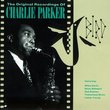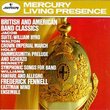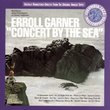| All Artists: Gustav Mahler, Pierre Boulez, Vienna Philharmonic Orchestra Title: Mahler: Symphonie No. 6 Members Wishing: 0 Total Copies: 3 Label: Deutsche Grammophon Release Date: 4/11/1995 Genre: Classical Style: Symphonies Number of Discs: 1 SwapaCD Credits: 1 UPC: 028944583526 |
Search - Gustav Mahler, Pierre Boulez, Vienna Philharmonic Orchestra :: Mahler: Symphonie No. 6
 | Gustav Mahler, Pierre Boulez, Vienna Philharmonic Orchestra Mahler: Symphonie No. 6 Genre: Classical
No Description Available No Track Information Available Media Type: CD Artist: MAHLER,G. Title: SYM 6 Street Release Date: 04/11/1995 ![header=[] body=[This CD is available to be requested as disc only.]](/images/attributes/disc.png?v=4eeb5dd5) ![header=[] body=[This CD is available to be requested with the disc and back insert.]](/images/attributes/disc_back.png?v=4eeb5dd5) ![header=[] body=[This CD is available to be requested with the disc and front insert.]](/images/attributes/disc_front.png?v=4eeb5dd5) ![header=[] body=[This CD is available to be requested with the disc, front and back inserts.]](/images/attributes/disc_front_back.png?v=4eeb5dd5) |
Larger Image |
CD DetailsSynopsis
Product Description No Description Available No Track Information Available Media Type: CD Artist: MAHLER,G. Title: SYM 6 Street Release Date: 04/11/1995 Similar CDs
Similarly Requested CDs
|
CD ReviewsIt has so many things going for it. Moses Alexander | Alabama, USA | 05/29/2004 (5 out of 5 stars) "I've listened to all the usual suspects in those competing for "Best Mahler 6th" and this one is the one that I prefer after repeated listenings. I love Karajan's reading of the opening movement, it is big and powerful (probably a bit more than Boulez's) and you can't argue with saying that Bernstein's is certainly among the finest either.Boulez does an excellent job here, it is meticulous reading as others have said. At times in the first movement, I wish the brass was a bit stronger, but that is really just a minor grumble. One of the other things that makes me come back to this one more often is the fact that it is on a single disc. I can listen to it all the way through without having to change CDs or have a huge gap in between movements waiting for the CD changer to kick in. When three recordings are as neck and neck as Bernstein, Boulez and Karajan, the single disc (for price & convenience) pushed it over the top for me.I'm sure a lot of people will grumble, moan and roll their eyes at this, but let's be honest, how many people besides those with music degrees or listening to the recording with a copy of the score in their lap are going to miss a few seconds here and there? I'd rather here it tightened up and put it all on one disc." Not for intellectuals Arnout Koeneman | the netherlands | 09/04/2003 (5 out of 5 stars) "I shall make it short, because there are already so much excellent reviews written in favour of Boulez. Because I'm very sensitive for choice of tempi I didn't actually like Barbirolli's recording in which the first movement is extemely slow. My attention slips away and, perhaps not fairly I put this record aside. Rattle, however is way too fast in the opening movement. Inbal is ok, but takes the second movement (scherzo) too slow in contrast with the first movement. Boulez is just right. Right in everything, to my ears that is. I cannot say it more often, with Boulez music flows, makes sense and the drama is right there: in the music itself. I love it. One comment: I've read some reviews by a reviewer named Tony Duggan on Music Webb and there he states that any new performance must at least present the listener some questions about the music as you know it. He has a point, I agree with him, that is intellectually. But that means I musn't like Boulez' reading because it answers the questions and fullfills almost all my wishes in this symphony. Therefore it would be better for me to favour a slow Barbirolli and a speedy Rattle. Luckily I'm not an intellectual, and I can rank this Boulez at the top and give it 5 stars without hesitations. For me the reference at this moment" One of the better efforts in Boulez's cycle, but... John Grabowski | USA | 09/30/2001 (5 out of 5 stars) "My desert island would be crowded with Mahler 6ths...Barbirolli, Karajan, Bernstein, Szell--the piece is well-served on disc. This Boulez recording with the Vienna Philharmonic is up there with the best of them, though curiously it's a bit empty, emotionally, in the finale. Maybe I'm just spoiled by Karajan, who steamrollers you in the last movement (I think it's one of the greatest testaments to his conducting on record) but Boulez, while he gets everything right, doesn't pull me along the same way Karajan does. But interesting, Boulez *is* at his warmest and lyrical best (yes, Boulez, warm and lyrical1) in the "Alma" theme of the first movement. He pulls this off as I've never heard it before, with a natural effortlessness, without really doing anything differently than any other conductor I've ever heard. The first movement overall is broader than I'm used to hearing, yet this very quality makes it more relentless, though at times in the development I feel the tension sags a bit. One of these days I must play again the Barbirolli recording, which is even slower, and see how (if) tension is sustained there. The second movement, which I've never found one of Mahler's more satisfying creations, is given a straight-ahead stop here. But to me this is always just a transition (and not a very successful one to my ears) to the magnificent third movement. It's a great effort, but to me Boulez, who supposedly analyzes every micro-marking in scores, takes it all a little too slowly. Either that or he is slowing down as he ages, for this is hardly a "walking tempo." Others have taken it slower, however (Barbirolli for one), but still, I prefer an honest-to-God Andante. (The same problem exists with the Beethoven 7th--so many conductors like to take the Allegretto as an Andante, or in Bernstein's case with his last recording, an Adagio.)
This brings us to the finale, a movement that truly is a *finale,* a whole symphony, a whole opera, in itself. Can the cool and calculating Boulez surpass the imperious and epic Karajan? No. No one can. But this *is* a great performance, that illuminates the "vertical" (textural) qualities of the score more than the "horizontal" (structural, dramatic). The climaxes are loud (the pictures will shake on your wall), but I'd like to hear a little more drama. For example, Karajan makes the strings smile (you've never heard Herbie so sunny) only to have them smited by the hammer blows. Here the hammer blows don't change the mood so much, so to my ears the movement, and symphony, aren't as tragic. Having said all that, however, I will add that, well-played and recorded as it is, there is little here that is new, an insight--there's just crystaline clarity. After being away from both the podium and Mahler for so long, I would expect Boulez to have gained insights into this work, but this is pretty mainstream. And that's been true of most of his Mahler cycle so far, which has been uneven to my ears: I don't hear a master with a ripened view of the works laying down his ultimate statement. I hear performances that are cleaner and clearer than before, but that is all. I have to admit that, overall, I am a little disappointed by this cycle, though I eagerly await his recording of what is probably my favorite Mahler symphony, the Second. (Post Script: After listening to Barbirolli again I've discovered the way he sustains the tension--accents and dynamics. His Mahler 6th--which I hadn't played in years--is so much more exicing than this one that I would like to remove a star from my rating here. I need to ask Amazon how to do that. In the meantime I will reiterate that Boulez's performance, fine as it is, sounds more like *re*creation than creation, and lacks a personal view of the music as anything more than notes and chords that have to be sounded cleanly and clearly. "Clinical," in other words.)" |

 Track Listings (4) - Disc #1
Track Listings (4) - Disc #1









